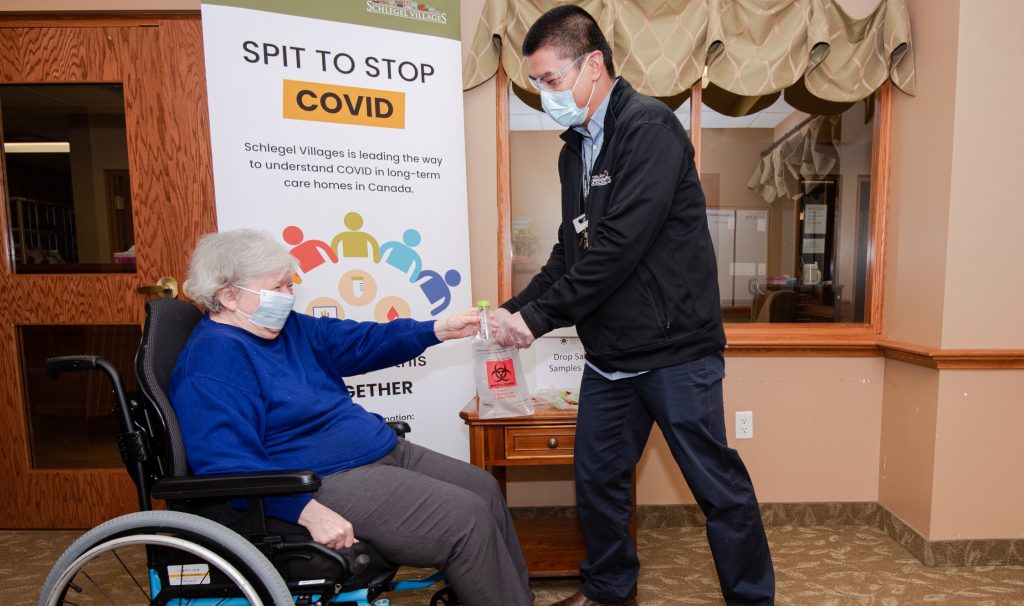McMaster-based study supports third vaccination for seniors

More than 90 per cent of residents in long-term care facilities created an initial immune response after two doses of COVID-19 vaccine, and researchers recommend third-dose boosters be provided immediately.
August 17, 2021
Dawn Bowdish and Andrew Costa, researchers with Canada’s Global Nexus for Pandemics and Biological Threats, have shared important initial findings from an unpublished study on COVID-19 immunity responses in Ontario long-term care facility residents.
The study, conducted between March and July 2021, three to four months after residents received their second vaccination dose, presents new and comprehensive information on the ways that older adults are able to develop immunity protection.
“The vaccines are working, given that over 90 per cent of residents studied create an initial immune response” said Costa, co-lead of the Canada’s Global Nexus task force on Long-Term Care Crisis Management and Renewal, and Schlegel Chair in Clinical Epidemiology and Aging.
“The critical new science sheds light on what happens after vaccination, and the steps we need to take right now to protect some seniors who remain at risk of infection.”
Acting on the new learning can prevent deaths, said Bowdish, research program co-lead for Canada’s Global Nexus, and Canada Research Chair in Aging & Immunity.
“We know now that some long-term care residents – for reasons that may be related to other health conditions or simply to age-related changes in the body – remain vulnerable to future COVID-19 infection even after two vaccine doses.”
While the reasons for these differences in immune response will be a focus for this continuing study, the implications are clear: third-dose boosters should be provided immediately to long-term care residents and other immunocompromised groups.
Secondarily, the study also found greater effectiveness in those receiving Moderna doses in comparison to those who received the Pfizer vaccine. This recommends the immediate deployment of potentially expiring Moderna supply to reduce risks of breakthrough infection and variant spread in long-term care facilities.
The unpublished study is supported by a COVID-19 Immunity Task Force award from the Canadian Institutes for Health Research. With a commitment to agility and collaboration, the Canada’s Global Nexus task force has shared the study’s initial findings with provincial and federal health agency partners, and will continue to share ongoing learning in support of new policy directives.


